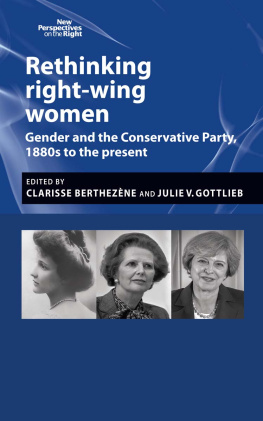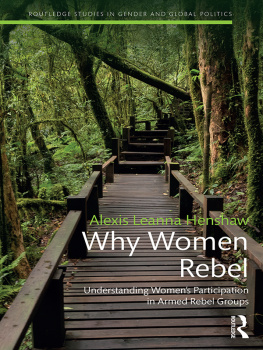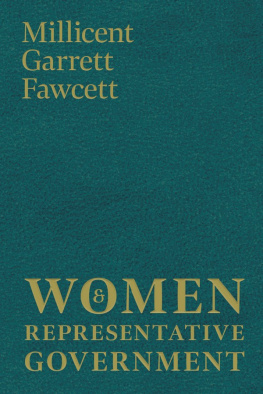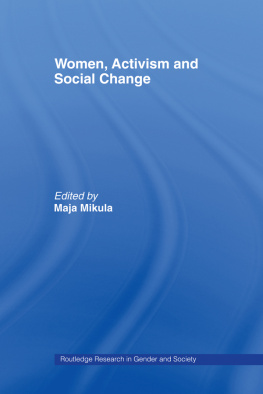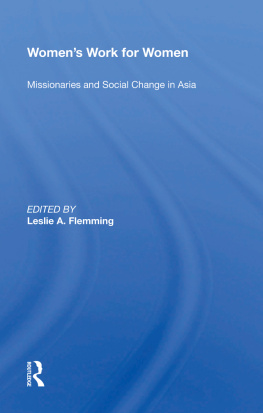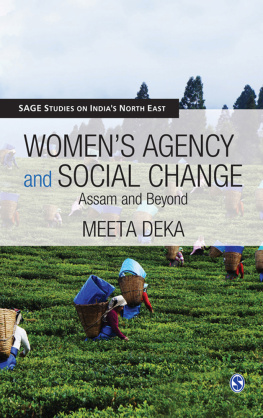Agitate, Educate, Organise, Legislate
Agitate, Educate, Organise, Legislate
Protestant Womens Social Action in Post-Suffrage Australia
Ellen Warne

MELBOURNE UNIVERSITY PRESS
An imprint of Melbourne University Publishing Limited
Level 1, 715 Swanston Street, Carlton, Victoria 3053, Australia
www.mup.com.au
First published 2017
Text Ellen Warne, 2017
Design and typography Melbourne University Publishing Limited, 2017
This book is copyright. Apart from any use permitted under the Copyright Act 1968 and subsequent amendments, no part may be reproduced, stored in a retrieval system or transmitted by any means or process whatsoever without the prior written permission of the publishers.
Every attempt has been made to locate the copyright holders for material quoted in this book. Any person or organisation that may have been overlooked or misattributed may contact the publisher.
Text and cover design by Philip Campbell Design
Typeset by J&M Typesetting
Printed in Australia by Opus Group
National Library of Australia Cataloguing-in-Publication entry
Warne, Ellen, author.
Agitate, educate, organise, legislate: Protestant womens social action in post-suffrage Australia/Ellen Warne.
9780522869927 (hardback)
9780522869903 (paperback)
9780522869910 (ebook)
Includes bibliographical references and index.
Protestant womenAustraliaHistory.
Social actionAustraliaHistory.
WomenAustraliaSocial conditions19th century.
WomenAustraliaSocial conditions20th century.

Contents
Acknowledgements
In the course of researching and writing this book I have benefited enormously from the institutions and people that have made it possible. Some of the early research was funded by an Australian Postgraduate Award, and later research was partially funded through the Australian Catholic University Research Funding Scheme, which allowed me to access records at the Warwick Modern Record Office and the Fawcett Collection housed at the London School of Economics. The archivists there, along with those at the Baillieu Library at the University of Melbourne, Australian Catholic University Library, the National Library of Australia, the State Library of Victoria, the Mitchell Library in NSW, the Mortlock Library in South Australia and the State Library of Western Australia have all provided invaluable assistance. The Young Womens Christian Association (YWCA), Womans Christian Temperance Union (WCTU) and Mothers Union have all made their archival collections available to me, in their offices in Melbourne, allowing me to read and use resources that couldnt be found elsewhere. Now the collections of the YWCA and WCTU are housed in the University of Melbourne archivesa great boon to researchers.
A number of my colleagues around the country have shared their work and ideas with me, read countless versions of my writing and have provided perceptive comments and suggestions on drafts and chapters. My deepest thanks to Shurlee Swain, Patricia Grimshaw and Frazer Andrewes, who saw this work through from beginning to end, and to Nell Musgrove, Noah Riseman, Naomi Wolfe, Michael Ondaatje, Matthew Ryan, Jen Couch, Theda Thomas, Carolyn Sutherland and Michael Adcock. Others have responded to my work at conferences and networks, in particular Renate Howe, Marion Quartly, Judith Smart, Margaret Allen, Jane Carey, Cath Bishop and Laura Rademaker.
In the preparation of the manuscript Julien Varrenti-Osmond, Joanne Townsend and Meighen Katz have all been wonderful assistants in many tasks. An editorial team of five have seen me through different stages of production: Joy Damousi as commissioning editor of the History Series at Melbourne University Publishing oversaw the project, along with Catherine McInnis and Louise Stirling. Janet Purkis was invaluable in the first stage of consolidating the manuscript, as was Meryl Potter in copyediting.
At home, the intellectual engagement and support of Frazer and Mia Andrewes and Elaine and Garry Warne over many years made this book possible. This book is dedicated to them.
List of Abbreviations
| AICF | Australian Industrial Christian Fellowship |
| ALP | Australian Labor Party |
| ILO | International Labour Organization |
| NCW | National Council of Women |
| SCM | Student Christian Movement |
| WCTU | Womans Christian Temperance Union |
| WSCF | World Student Christian Federation |
| YMCA | Young Mens Christian Association |
| YWCA | Young Womens Christian Association |
Introduction
The YWCA, WCTU and Mothers Union 18901939
In 1900 a member of the Australian public cautiously asked a Methodist clergyman, Is the W.C.T.U. a society of agitators, for I believe that a womans proper sphere is the home? The clergyman explained that, although its vision was for grand public service, this was not at the expense of the home. The Womans Christian Temperance Union (WCTU) motto For God, for Home, for Native Land aligned with its interest in a wide range of social causes; its members were not only desirous that women should wish to attain these ends, but they thought women should have a voice in such legislation as would bring them about.
This book investigates the strategic responses of women reformers in three organisationsthe Womans Christian Temperance Union (WCTU), the Young Womens Christian Association (YWCA or
Historians have examined the explicitly feminist organisations active in this period. However, the womens groups examined in Agitate, Educate, Organise, Legislate were to some extent ill-at-ease with the label feministsometimes colluding with the feminist agenda and sometimes standing apart. They focused their energies on positions that revolved around renovation rather than major change (although some of their goals to completely eliminate alcohol or create a single moral standard for men or women might have had dramatic effects had they been successful). In focusing on social renovation, the groups acted outside the formal politics to which they had recently been admitted, continuing to assert the moral authority that had typified womens lobbying in the nineteenth century, within a twentieth-century framework.
This book examines how this group of social reformers moved to reform agendas that aimed to protect young people and the Christian home in a variety of settings that promised security and moral guidance, outside or alongside, the family home. They targeted a wide range of issues, including the possible negative influences of motion picture shows, the need to guard against the growing sexualisation of youth, the threat of car driving combined with alcohol, and the other destructive effects of alcohol, tobacco and opium in general. At the same time, however, these groups could be sharply critical of laws, behaviours and social mores that rendered women vulnerable both in the home and the modern workforce. This was particularly so when employers sought to employ girl workers, many of whom were still legally children or young teenagers, for minimal pay: in fact pay so low that young women could not readily afford to live alone in the city.
Next page

